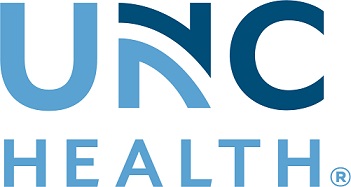For immediate release
Triple Drug Treatment Keeps Heart Failure From Worsening
by LESLIE LANG
UNC-CH School of Medicine
CHAPEL HILL -- People with heart failure are less likely to experience a worsening of their condition if they are treated with three drugs, including digoxin, an inexpensive heart drug in use for 200 years, suggests a study co-authored by researchers from the University of North Carolina at Chapel Hill.
In a report published this month in the Journal of the American College of Cardiology, senior author Dr. Kirkwood F. Adams, associate professor of medicine and radiology at UNC-CH School of Medicine, and colleagues argue that the combined use of three standard heart and blood pressure medications -- diuretics, ACE inhibitors and digoxin -- be used as soon as patients are diagnosed with heart failure.
"In a nutshell, what we showed was that digoxin, which is a drug that has been around for two centuries, that is low-cost and basically easy to take once a day, adds substantially to ACE inhibitors and diuretics which have become in many peopleÃs eyes the principal treatment for heart failure," Adams says. "What weÃre suggesting is that our data supports the idea that the three drugs together should be considered as patients present heart failure symptoms."
Digoxin is the most common digitalis drug and widely used in the community. Yet, according to Adams, director of the universityÃs heart failure program, digoxin fell out of favor among some doctors as a standard treatment for that condition because of concerns about toxicity. The combination of blood pressure agents known as diuretics (for reducing water retention) and ACE (angiotensin-converting enzyme) inhibitors, which dilate blood vessels, are more widely advocated.
The new study is another statistical look at data from two investigations completed in 1993. These were controlled clinical trials in which neither patients nor researchers knew who was taking active medications or lookalike placebos. One investigation compared heart failure patients who were treated with both digoxin and diuretics versus treatment with diuretics alone. The other study compared patients who took diuretics and ACE inhibitors to those who received all three types of drugs.
"The results of these clinical trials suggested that we should take another look at the therapeutic role of digoxin for heart failure," says study co-author Dr. J. Herbert Patterson, associate professor of pharmacy and research associate professor of medicine at UNC. Since 1984, he and Adams have collaborated in numerous clinical trials investigating drugs for heart failure.
In their new study, the researchers found striking statistical differences in the risk of heart failure deterioration among four groups of men and women, average age 63. Over a 20-week study period, heart failure grew worse in only 4.7 percent of patients who continued the triple drug therapy, compared to 19 percent of those on digoxin and diuretics, 25 percent of those taking ACE inhibitors and diuretic therapy, and 39 percent of those on diuretics alone. Digoxin was safe and well-tolerated among the study patients.
The report notes that people on the triple drug therapy needed significantly fewer medication adjustments, emergency room visits and hospitalizations. They also had greater exercise capacity, measured by the ability to walk an exercise treadmill, and showed a lack of deterioration in the heartÃs ability to pump blood.
"Our new study uses a novel combination of clinical and statistical methods to draw therapeutic knowledge from previous controlled trials of digoxin in heart failure," Adams says. "Our study shows thereÃs still a role for digoxin and that it works well with other standard agents."
Heart failure, an inability of the heart to pump blood effectively to the lungs and to the rest of the body, is the single most frequent cause of hospitalization in the United States for people age 65 and older. Symptoms include fatigue, breathing difficulty, and swelling of the ankles and legs.
Along with Adams and Patterson, co-authors of the report include Dr. James B. Young of the Cleveland Clinic Foundation in Ohio; Dr. Mihai Gheorghiade of Northwestern University, Evanston, Illinois; and Dr. Barry Uretsky of the University of Texas, Galveston.
Note to media: Dr. Kirkwood F. Adams can be reached at 919-966-4445. Dr. J. Herbert Patterson can be reached at 919-962-0073.
UNC-CH medical school contact: Leslie Lang, 919-966-3366
